Search Results
Showing results 1 to 20 of 40
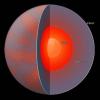
Heavyweight Champion: Jupiter
Source Institutions
In this activity, learners confront their perceptions of gravity in the solar system.

Dunking the Planets
Source Institutions
In this demonstration, learners compare the relative sizes and masses of scale models of the planets as represented by fruits and other foods.
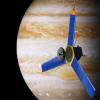
The Pull of the Planets
Source Institutions
In this activity, learners model the gravitational fields of planets on a flexible surface.

Do Your Own Dig
Source Institutions
In this outdoor archaeology activity, learners use mathematical skills and scientific inquiry to generate and process information from their own excavation site.
The Earth's Timeline
Source Institutions
In this group activity, learners will mark important developments of life on Earth on a timeline (each foot in length representing 200 million years).
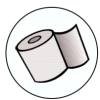
Toilet Paper Solar System
Source Institutions
In this activity, learners build a scale model of the solar system using a roll of toilet paper.
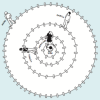
Human-powered Orrery
Source Institutions
In this space science activity, learners work together to create a human-powered orrery to model the movements of the four inner planets.
Light on Other Planets
Source Institutions
In this math-based activity, learners model the intensity of light at various distances from a light source, and understand how astronomers measure the amount of sunlight that hits our planet and othe

The Thousand-Yard Model
Source Institutions
This is a classic exercise for visualizing the scale of the Solar System.

How Big Were the Dinosaurs?
Source Institutions
In this activity (located on page 4 of PDF), learners gain insight into the actual size of dinosaurs and practice making estimations and measurements.
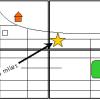
Solar System in My Neighborhood
Source Institutions
In this activity, learners shrink the scale of the vast solar system to the size of their neighborhood.
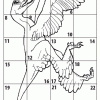
Smaller Than You Think
Source Institutions
Learners compare a life-size drawing of a Tyrannosaurus rex head and a full-size Sinornithosaurus body to understand that dinosaurs varied in size.

Postcards from Space
Source Institutions
Using information from the My Place in Space lithograph, learners write and/or draw a postcard to friends and family as if they had gone beyond the interstellar boundary of our Solar System, into the

Size, Scale and Models
Source Institutions
In this activity, learners take measurements and create charts to learn about the size of dinosaurs and their relative scale to humans.
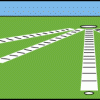
The Size and Distance of the Planets
Source Institutions
In this activity, learners investigate the concepts of relative size and distance by creating a basic model of the solar system.

Make a Dinosaur
Source Institutions
In this activity, learners explore the size and scale of dinosaurs. Learners listen to "Dinosaurs, Dinosaurs" by Byron Barton to understand some background information about dinosaurs.
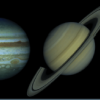
Our Solar System to Scale
Source Institutions
In this activity, learners plan and create a 24-foot long, two-dimensional model of our solar system, and compare and contrast the differences between planets and the sun.

Scale Model of Sun and Earth
Source Institutions
In this activity, learners explore the relative size of the Sun and Earth as well as the distance between them.
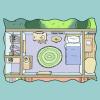
Map Your World
Source Institutions
In this activity, learners map their world by drawing a plan of their bedroom.
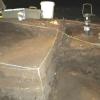
Looking Back Through Time
Source Institutions
In this activity, learners create their own archaeological profiles.
